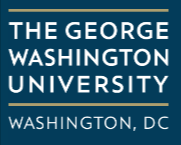Ruby, the popular object-oriented open-source programming language, is a great place to start learning programming or web development. You can use it to write interactive programs or build scripts to speed up common tasks

Ruby, the popular object-oriented open-source programming language, is a great place to start learning programming or web development. You can use it to write interactive programs or build scripts to speed up common tasks In this course, instructor Kevin Skoglund provides the basics that new and experienced developers need to know to start coding with Ruby, starting with the core object types: numbers, strings, symbols, booleans, and more.
He demonstrates Ruby’s control structures, including conditionals, loops, and iterators. Kevin explains scripting best practices and shows the power of using enumerables and code blocks. By the end of the course, you should be able to use Ruby to define your own custom methods with loops and conditional logic.
The George Washington University is co-leading a multi-institutional effort supported by the National Science Foundation (NSF) that will develop new artificial intelligence (AI) technologies designed to promote trust and mitigate risks, while simultaneously empowering and educating the public.
The NSF Institute for Trustworthy AI in Law & Society (TRAILS) unites specialists in AI and machine learning with systems engineers, social scientists, legal scholars, educators, and public policy experts. The multidisciplinary team will work with impacted communities, private industry, and the federal government to determine how to evaluate trust in AI.
How to develop technical solutions and processes for AI that can be trusted, and which policy models best create and sustain trust. David Broniatowski, an associate professor of engineering management and systems engineering at GW, is the lead principal investigator of TRAILS at GW.
Founded in 1884, the mission of the School of Engineering and Applied Science (SEAS) of The George Washington University is to serve the global community by:
Located in the nation’s capital, SEAS strives to promote a multicultural technological community and maintain and develop special integrated programs with industry and government.
SEAS' programs and degrees prepare professionals to be confident in their understanding of science and technology, capable of exercising constructive leadership, creative in the face of new environmental and societal challenges, and agile in the application of critical analytical skills during a life long learning that will open new career horizons.
In all of its activities, the School strives to create a vibrant atmosphere, providing for interaction and joint ventures among faculty, students, and the abundant resources of scientists and facilities available in the Washington Metropolitan Area.
© 2025 coursetakers.com All Rights Reserved. Terms and Conditions of use | Privacy Policy